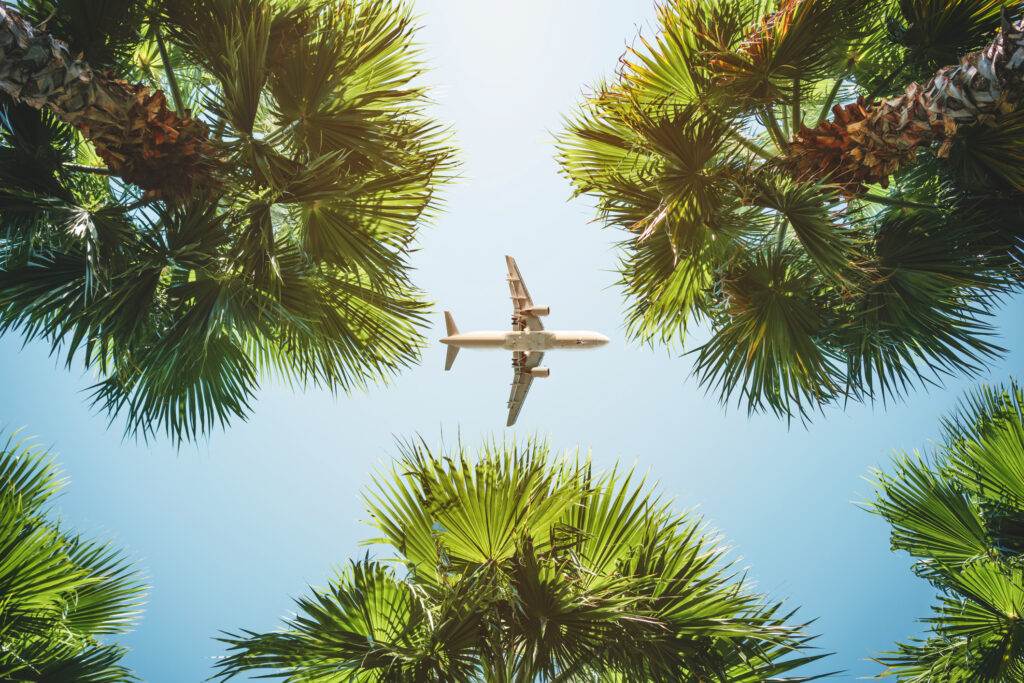Travel companies and organisations have largely blamed the aviation sector for the disruption seen at airports around the world during summer 2022.
Holidaymakers faced queues snaking out of terminals, long delays and high cancellation rates as airlines and airports struggled to ramp up services after the lifting of Covid restrictions.
In a poll of industry professionals, carried out for World Travel Market London, 21.5% blamed airlines for the chaos, while 13.5% pointed to airports and airport staff – meaning more than a third (35%) of respondents felt the problems were caused by the aviation sector.
Almost one in six (17.1%) said governments were to blame, reflecting the problems the aviation industry faced when reacting to the relaxation of travel restrictions with very little notice.
Brexit was blamed by 11.6% respondents – although that figure rose to 25% for those in non-EU Europe, suggesting the extra paperwork and restrictions on British travellers heading to the Continent have caused more headaches.
One in ten (10.4%) pointed to low wages in the industry, which meant many roles, such as baggage handlers, were tricky to fill in a tight labour market.
‘Travel companies in general’ were cited by 6.8% – and the same proportion also blamed passengers, many of whom were flying for the first time since 2019 and may have forgotten about issues such as preparing for security checks or passport validity.
The survey also asked: “How did the travel chaos of summer 2022 affect your business?”.
One third of respondents replied ‘positively’, 40% said it had a negative effect, and a quarter (26.7%) said the situation had remained the same.
Interestingly, when a WTM London consumer survey asked holidaymakers about who to blame for this summer’s airport chaos, ‘the government’ was cited by most, as a fifth of respondents pointed the finger at politicians.
One in six (16.5%) of consumers blamed airlines, while airports and airport staff were blamed by 14.8%.
Airlines and airports in many countries had to increase capacity rapidly earlier this year after restrictions were eased following the Omicron wave of Covid infections – releasing pent-up demand from leisure and business travellers.
But the sector encountered widespread problems recruiting staff, especially as vetting procedures for security workers takes longer than in normal jobs.
Airports such as Heathrow in London and Amsterdam’s Schiphol capped daily numbers, and many airlines in Europe were hit by strikes and industrial action as workers ranging from pilots to baggage handlers demanded pay increases and better working conditions.
By September, international traffic was about 32% down on where it was in 2019, with the Asia Pacific region lagging significantly behind, as it has been slow to relax Covid restrictions.
European aviation recovered to about 90% of pre-pandemic traffic levels but the sector still faces many challenges this winter with soaring fuel costs and rising inflation triggered by Putin’s war in Ukraine.
In the UK, the-then transport secretary Grant Shapps introduced one-off amnesty on airport slot rules, enabling airlines to plan ahead and avoid last-minute cancellations.
He also created a 22-point plan in June to tackle the disruption, which aimed to help the sector recruit and train staff and support passengers when delays and cancellations are unavoidable.
Juliette Losardo, Exhibition Director at World Travel Market London, said:
“Travel companies and tourist boards have been desperate to capitalise this summer on the huge bounce-back in demand amid the lifting of restrictions – but the aviation sector has been struggling with a crisis of resources and workers.
“As we head into winter in the northern hemisphere, there are signs that the situation is improving, and the airports and airlines are working hard to overcome these hurdles.
“Interestingly, when our survey asked about the main challenges for 2023, just 4.2% of respondents cited this year’s airport chaos, suggesting that the industry is confident the worst is behind us.
“Despite widespread media coverage of the airport disruption, it’s important to emphasise that the vast majority of travellers were able to get away on time – and the situation will improve as we prepare for 2023.
“Throughout the pandemic, WTM has supported all parts of the travel industry and that will continue as we aim to move from recovery into a growth phase. Several of the sessions at WTM London will address crucial issues facing the aviation sector and help our delegates tackle problems such as recruitment and Brexit.”
Airline/Airport related sessions at WTM
- The BIG Airline Session will feature John Strickland (JLS Consulting), WTM’s aviation expert, discussing the outlook for the airline business with CEOs from the sector.
Future Stage, Monday 7 November
https://www.wtm.com/london/en-gb/whats-on/conference-programme/sessions-details.2933.157824.the-big-airline-session.html
- In The Travel Know Podcast will feature Lee Haslett, Vice President of Global Sales, Virgin Atlantic.
Insight Stage, Monday 7 November
https://www.wtm.com/london/en-gb/whats-on/conference-programme/sessions-details.2933.158464.in-the-travel-know-podcast.html
- Future of Transport will look forward to new technology and sustainability demands.
Future Stage, Monday 7 November
https://www.wtm.com/london/en-gb/whats-on/conference-programme/sessions-details.2933.157825.future-of-transport.html
The WTM London trade survey quizzed 210 travel industry professionals from around the world. The consumer survey had 2,000 respondents.
